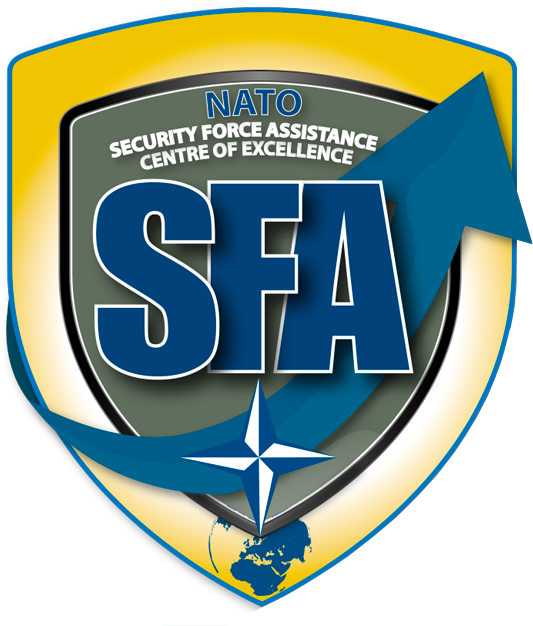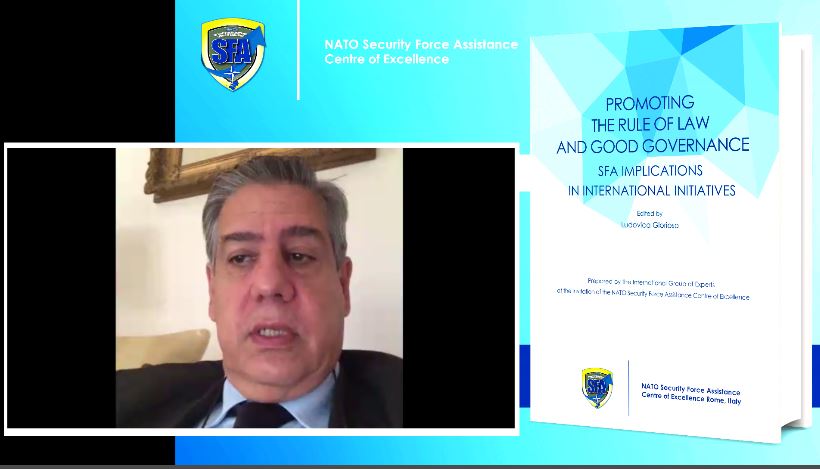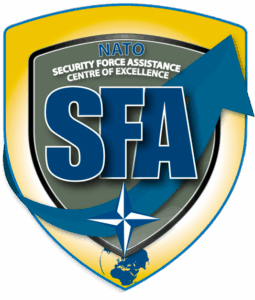Address for the NATO SFA COE launch of the book on “PROMOTING THE RULE OF LAW AND GOOD GOVERNANCE – SFA IMPLICATIONS IN INTERNATIONAL INITIATIVES”
H.E. Ambassador Stefano PONTECORVO
I wish to thank the NATO Security Force Assistance Centre of Excellence (NATO SFA COE) and Colonel Di Pietro for the invitation to speak at the launch of the NATO SFA COE book. This is an excellent initiative which is not only an exceedingly useful handbook on a subject matter which is becoming increasingly relevant for NATO, as it should be, but I also believe that it can be the beginning of a useful process of consultation, coordination and cooperation amongst various stakeholders and international organizations in peace supporting initiatives. May I also add, as an Italian, that I am particularly proud that the Italian Armed Forces have taken a lead on establishing the centre and in carrying forward its activities.
The book, which Major Glorioso has been kind enough to send me, is a complete anthology, I would say, of some of the primary international initiatives promoting the rule of law and good governance, and I was particularly impressed by its structure which goes from the strategic level to the specific topics in which security force assistance has an important role. The best practices by other international organizations, EU, UN, World Bank, ICRC, ICC, is an exceedingly important portion and serves the purpose of cross fertilizing our own thinking, which needs to take care of all aspects involving rule of law, anti-corruption, DDR and the like that at first sight have little to do with the military but are essential for ultimate success.
Development and security are not in competition and are not mutually exclusive. As the book shows, they are mutually reinforcing, and both concur to determine a much-needed holistic approach to peace supporting initiatives. Here we still need an evolution in our collective thinking, and switch into high gears avoiding outdated positions, at times dogmatic, and figure out ways in which we all have a role to play. As we are finding out around the world the task is huge and multi-faceted. SFA must play its role, but it must be complemented and complement itself a wider concept of peace supporting, by the whole of the international community.
I also welcome a more collective effort both in the conceptual and in the operational phase of SFA. As NATO, we are used to thinking collectively and acting collectively but there is always room for much needed additional consultation and improvement. Shared thinking makes a difference in the implementation phase. Particularly on matters, such as SFA, which we are still refining, and which will be a big part of future NATO operations. As Secretary General Stoltenberg has said in the past, we need to be able to project stability to places in the world which need it in order to increase the security of member states. This will be a prominent concern for NATO operations going forward.
Coming from my experience in Afghanistan, I cannot but fully concur with the main contentions of the book, starting from the fact that institution building is a must if we want security force assistance to work. Both must run in parallel as one reinforces the other and because they cannot be two separate exercises. This is exactly what failed in Afghanistan. We had an excellent Train, advise, assist and equip program which was anchored in a political reality which was not sustainable. This lead to the ultimate collapse of the Republic and ushered in the Taliban. In short, civilians and military need to work hand in hand, with shared objectives and mutual understanding of what each actor is doing. This has not always been true, across the globe, in the past.
In this vein, support to the political leadership is therefore a necessary component: they need to be seen as legitimate authorities, who need to be inclusive to gain consensus among the population. I am not advocating interference in recipient countries- internal affairs. The objective is not to impose anything alien to the country and the society, but to help in building compatible and healthy institutions. As we have seen in Afghanistan, armies do not fight in an institutional void or if they are not motivated: armies fight for an ideal and an idea if that idea is upheld, shared, and believed in. By society as a whole, and not simply by a small elite.
Another aspect which does not always receive the attention it deserves is the human dimension of peace supporting initiatives. This also is well highlighted in the book. Human engagement, and the cultural and social aspects tied to it, are another essential aspect of successful operations. Here there are several lessons to be learned from our Afghan experience. I am therefore convinced that this aspect, the human dimension and human engagement, makes a difference. If you get it right, you multiply your chances of success.
I believe wholeheartedly that we always need an exit strategy, in any endeavor we undertake. Particularly as a military peace supporting operation cannot last forever; civilians need to step in and consolidate the gains. In the long run this is the best option we have to project stability in recipient countries in order to protect our own security.
Thank you very much once again for the invitation and I wish you a very fruitful discussion. I am sure that the process undertaken by the Centre of Excellence in producing this book will go a long way towards enhancing our understanding and cooperation in SFA seen in the wider, and wiser, sense.
Thank you.



